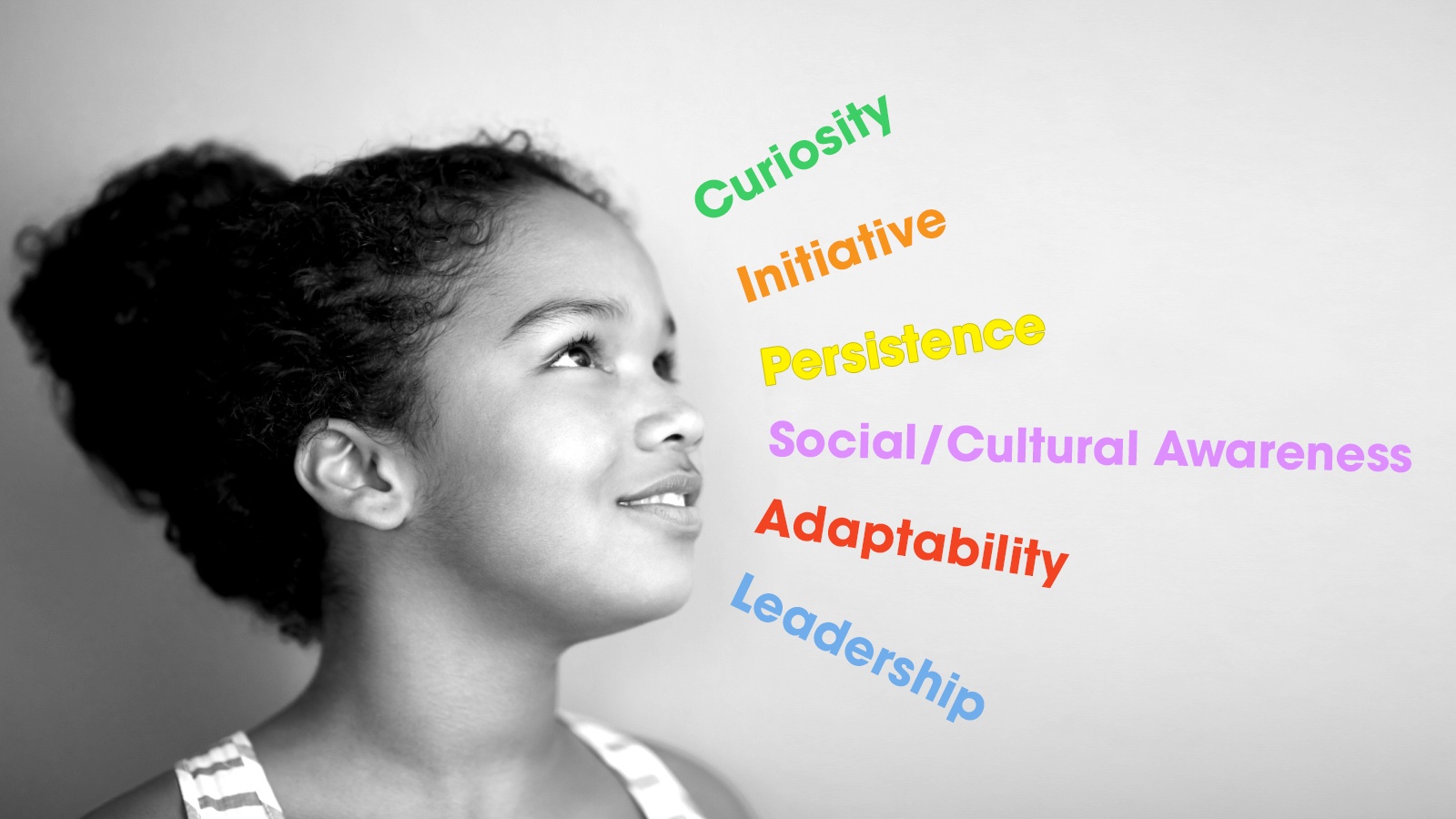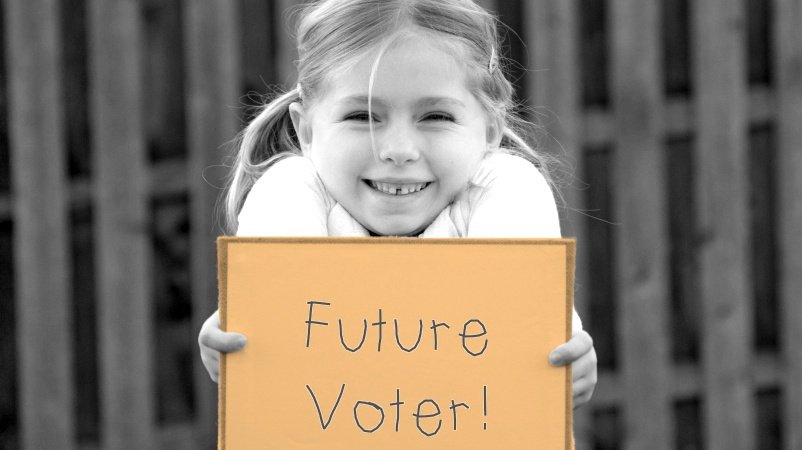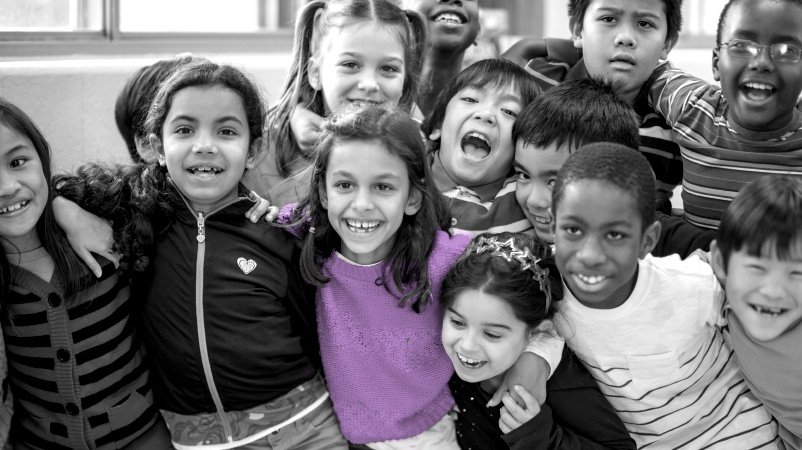
“Patriotism is not short, frenzied outbursts of emotion, but the tranquil and steady dedication of a lifetime.”
—Adlai E. Stevenson II, U.S. Diplomat, governor of Illinois, and presidential candidate
As Governor Stevenson alluded to, and as educators we know, teaching the rights and duties of citizenship requires persistence. For students, persistence and other character qualities can come through our modeling, direct lessons, advisories, and themes embedded in the stories we tell.
Civic learning ties directly to the heart of 21st-century skills. Six character qualities have been identified by the World Economic Forum as central to the development of these 21st-century skills: curiosity, initiative, persistence/grit, adaptability, leadership, and social and cultural awareness. Many civics-centered lessons lead directly to empowering students to practice developing these character qualities through action. Below you will find ideas for civics lessons that focus on each of these character qualities.
Get a free trial of Active Classroom to explore 21st century skills for social studies!
Curiosity
A hallmark of the initial Google work culture was an 80/20 rule whereby employees were encouraged to pursue side projects that captivated their interests for 20% of their work hours. In the classroom, we need students to channel their curiosity so they can discover how being actively involved in their community can create life-enhancing opportunities for themselves and others. Even with our packed curriculum guides and expectations, would it be possible to bring this ideal to the classroom? Would it be possible to devote an hour a week (spread across the week or all on one day) so students could pursue a social cause in which they have personal interest in? At the end of each month, students could start off the class period with project updates. Framed correctly, students could be expected to demonstrate their understandings in a Socratic seminar.

Initiative
Students can learn initiative from local government’s ability to respond to and provide guidance on local problems. In a democracy, bringing our best intentions to fruition through civic action can be very challenging. One possibility is to design a lesson asking students to attend a school board or city council meeting. Quite often, these meetings are televised on local channels. Students could also email or tweet interview questions concerning how school board members and city council members make decisions about their work. Guiding students through the process by which local government committees lay the groundwork for community action creates an excellent model of initiative.

Persistence/Grit
Effective civic responsibility requires persistence to stick with problems until they are solved, followed by continued monitoring. Students could be expected to fill in a daily journal of their struggles through difficult units throughout the year. Through self-reflection, students could share insights of how they demonstrated persistence through projects they thought were too difficult. It would be a very easy step for students to connect these same personal insights to historical examples of political leaders who persevered in times of crisis. Limited access to presidential diaries can be found at any of the presidential libraries.
Adaptability
Successful civic responsibility is dependent upon one’s ability to be resourceful and flexible to the needs of others. With ever-changing demographic shifts happening throughout the United States, an overwhelming majority of communities are integrating new immigrants from across the globe. A unit devoted to guiding students through the experiences of new immigrants, with an eye towards adaptability, can easily lead to broader civic discussions.

Leadership
Civic studies in leadership abound. The vast majority of these lessons guide students through chronicling a trying moment for a famous leader, or unpacking a leader’s entire life to decipher how they struggled to rise to a leadership position. To make these examples more personal, students can start locally by interviewing the mayor, a city council member, or even the school principal to investigate what is involved in being a local leader. This process can help students learn that there are many paths to leadership and that leadership can be manifested in many ways.

Social and Cultural Awareness
For students to be truly ready to engage as citizens in the 21st century, they need to have the skills to engage with a spectrum of people from diverse cultures and backgrounds. A unit designed around historical moments when a lack of social and cultural awareness led to damaging outcomes can be informative. A short sampling (in no particular order) can include: the Stonewall Riots, eugenics, the Asian Exclusion Acts, the Braceros program, the slave trade, America’s reaction to the Holocaust, Japanese Internment Camps, the civil rights movement, the Indian Civil Rights Act, and too many more. Showing the history of how America has struggled with acceptance and most importantly, collectively learned from it, greatly informs social and cultural awareness. This reflection on the importance of inclusion enriches civic learning and responsibility in real settings where students can apply 21st-century learning.
In summary, civic learning can help foster character development. By focusing on these character qualities, we can bring out the best in our students for themselves and our communities.
We are always interested in your ideas for teaching civic learning. Please feel free to add a comment so we can keep the conversation alive.
Get a free trial of Active Classroom to explore more 21st-century skills for social studies
Ken Klieman is the author of Building an Empathy-Based Classroom, and has taught over 5,500 students and trained over 3,000 teachers. Ken has been awarded both California Teacher of the Year and Comcast All-Star Teacher of the Year. His work as a leading teacher trainer for the NEA and CTA and keynote speaker have solidified his pedagogical approach focusing on community building through performance-based, student-inquiry projects.


